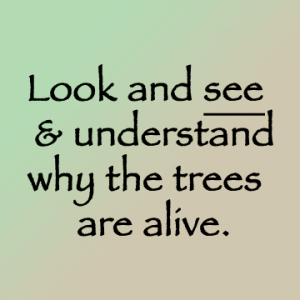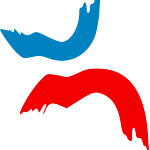You’re never too old for Wikipedia
Posted by Nicholas on May 7th, 2012

"Woman and Man" by Irene Lynch / oil stick on rubbed oil on prepared canvas" / approximately 8 feet x 6 feet / hangs unframed / c. 1983
Meet Irene.
Irene contributed $5,000 to Wikimania 2012, joining the likes of Google and WikiHow in sponsoring the international gathering of individuals who work in support of free global access to the sum of human knowledge. But unlike other Wikimania sponsors, Irene is not an internet company, non-profit organization, or philanthropic foundation. Irene is a 78-year-old private individual from New Jersey who describes herself as a “peace seeker, mother, grandmother, and great grandmother.”
“My donation to Wikimedia Foundation was inspired by the very mission it espouses,” Irene says. “Without responsible freedom to learn and act, we cannot heal, we cannot grow in a truly healthful fashion.”
Irene is more than just a great grandmother who loves Wikipedia. She also describes herself as a storyteller and an artist.
“My life is my story,” she says. “There are times when I’ve speculated that I could have been born either in one of the Kansas City, MO public libraries, or the Nelson Art Gallery. My mother spent so much time in them that I learned to read about four, and the arts became my passion.”
Irene cultivated her passion for culture and art through painting (see left), as well as through reading and writing poetry (she says her favorite poem is Ulysses by Tennyson). But it was her continuous pursuit of knowledge that she channeled into her love of the world’s largest encyclopedia.
“I so deeply appreciate what you’ve done for so many over the years!” Irene says of Wikipedia. “As a non-academic scholar and artist, you have sent in wonderful directions in my search for truth & justice, and human compassion.”
Irene will be attending Wikimania 2012 this July, joining an estimated 1000 domestic and international attendees. While on Wikipedia, she’s just one of over 450 million unique visitors, in Wikimania, she’s truly one in a million.
“It is an imperfect humanity we all share, and it is my hope to share conversations with like folks at this conference in DC,” she says. At 78, Irene is further proof that you’re truly never too old to keep learning and to fall in love with Wikipedia.
Everyone at Wikimedia DC thanks Irene for her gracious contribution and we all look forward to welcoming her to Washington, DC, this July.
Nicholas Michael Bashour, President, Wikimedia District of Columbia
Note: if you would like to leave a note for Irene, leave a comment, and Wikimedia DC will forward it to her.

"Woman and Man" by Irene Lynch / oil stick on rubbed oil on prepared canvas" / approximately 8 feet x 6 feet / hangs unframed / c. 1983
Meet Irene.
Irene contributed $5,000 to Wikimania 2012, joining the likes of Google and WikiHow in sponsoring the international gathering of individuals who work in support of free global access to the sum of human knowledge. But unlike other Wikimania sponsors, Irene is not an internet company, non-profit organization, or philanthropic foundation. Irene is a 78-year-old private individual from New Jersey who describes herself as a “peace seeker, mother, grandmother, and great grandmother.”
“My donation to Wikimedia Foundation was inspired by the very mission it espouses,” Irene says. “Without responsible freedom to learn and act, we cannot heal, we cannot grow in a truly healthful fashion.”
Irene is more than just a great grandmother who loves Wikipedia. She also describes herself as a storyteller and an artist.
“My life is my story,” she says. “There are times when I’ve speculated that I could have been born either in one of the Kansas City, MO public libraries, or the Nelson Art Gallery. My mother spent so much time in them that I learned to read about four, and the arts became my passion.”
Irene cultivated her passion for culture and art through painting (see left), as well as through reading and writing poetry (she says her favorite poem is Ulysses by Tennyson). But it was her continuous pursuit of knowledge that she channeled into her love of the world’s largest encyclopedia.
“I so deeply appreciate what you’ve done for so many over the years!” Irene says of Wikipedia. “As a non-academic scholar and artist, you have sent in wonderful directions in my search for truth & justice, and human compassion.”
Irene will be attending Wikimania 2012 this July, joining an estimated 1000 domestic and international attendees. While on Wikipedia, she’s just one of over 450 million unique visitors, in Wikimania, she’s truly one in a million.
“It is an imperfect humanity we all share, and it is my hope to share conversations with like folks at this conference in DC,” she says. At 78, Irene is further proof that you’re truly never too old to keep learning and to fall in love with Wikipedia.
Everyone at Wikimedia DC thanks Irene for her gracious contribution and we all look forward to welcoming her to Washington, DC, this July.
Nicholas Michael Bashour, President, Wikimedia District of Columbia
Note: if you would like to leave a note for Irene, leave a comment, and Wikimedia DC will forward it to her.


